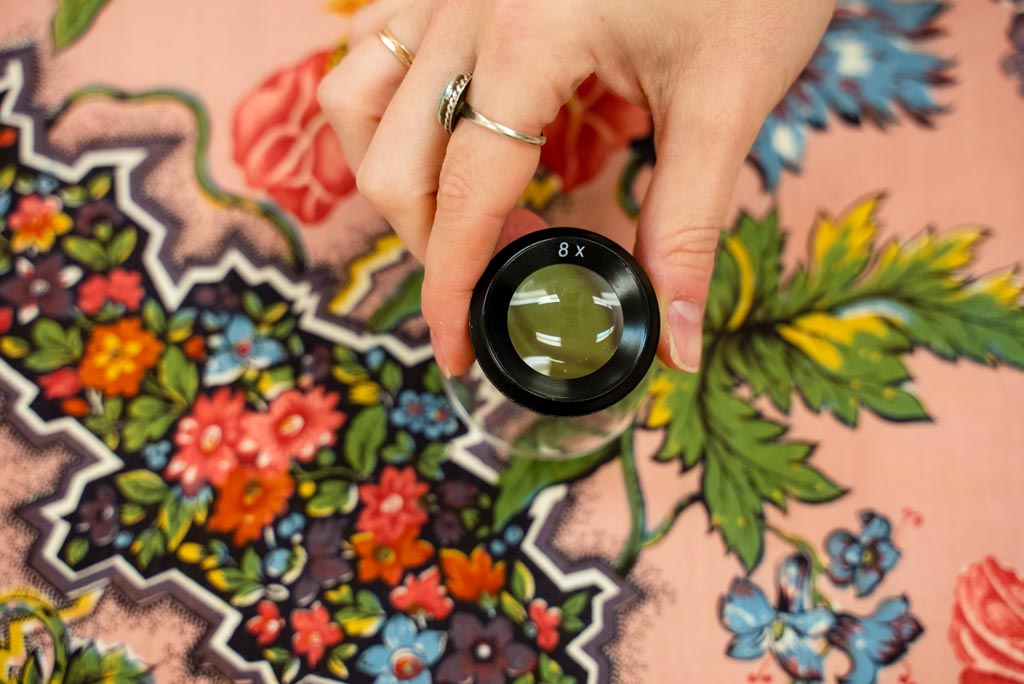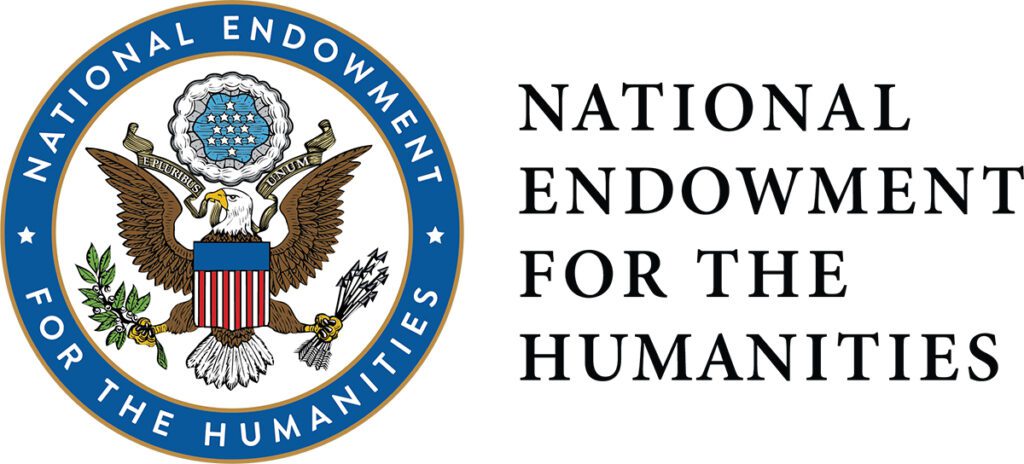
What Can You Do at Winterthur?
Fellows can utilize the 20,000 American and European imprints, 3,000 record groups of manuscripts, as well as trade catalogues, ephemera, photographs, and archives of the Winterthur Library, an independent, world-class research collection. They can also examine Winterthur Museum’s expansive object collections of more than 90,000 artifacts that help us broadly understand four centuries of everyday life in America in a global context. They can look at these collections with specialists and experts and consult with conservators and scientific staff to request testing to better understand objects and interpret them at a chemical level. They can explore 7,500 plant specimens and more than 1,000 acres of landscape and gardens, using these spaces and materials for research, or for respite and recharging. Fellowship privileges and policies can be found here.
Winterthur Research Fellowship staff are eager to talk with you about potential projects and your application. Please contact Catharine Dann Roeber and Jackie Killian with any questions.
Applications are due January 15. Applications will be available online on November 1, 2023.
Selected fellows will be notified by April 1, 2024.
Fellowships can be completed between September 1, 2024 and August 31, 2025.
Fellowships
- Postdoctoral Fellowship
Winterthur Postdoctoral Fellowship
NEH Postdoctoral Fellowship - Dissertation Fellowship
- Short-Term Fellowship
- Maker-Creator Fellowship
- Remote Fellowship
- Affiliated Researchers
Fellowship Requirements
- Fellows are asked to participate in Winterthur’s research community by attending weekly Research Fellowship Program talks.
- Fellows will be asked to give at least one presentation at the Research Fellowship Program weekly talks. We prefer this requirement to be completed during the residency but will work with fellows to schedule this at a mutually agreeable time after the fellowship is completed. If interested in offering a workshop or other public presentation, Research Fellowship Program staff are happy to discuss those ideas with you and plan for their experiences in advance of arriving for the fellowship.
- Fellows are asked to compose one social media post about their research and share this via their personal social media channels, tagging #researchatwinterthur and the @winterthurmuse social media account.
- Fellows cannot accept teaching assignments or undertaking any other major activities during their fellowship tenure.
- Residential fellowships require that fellows be on-site at Winterthur at least four days per week in order to fulfill the fellowship. Remote fellows are expected to spend the equivalent time dedicated to their projects.
- Fellows may hold non-Winterthur fellowships or grants during the fellowship tenure including sabbaticals and grants from their own institutions so long as they do not conflict with their ability to meet the requirements of the Winterthur fellowship.
Postdoctoral Fellowships
Winterthur Postdoctoral Fellowship
Stipend: $4,500 per month.
Applicants at any level or rank who have completed their Ph.D. by the start of their residency may apply for a four-month fellowship to pursue advanced research or revise research for publication. The applicant may still be a Ph.D. candidate at the time of the application (January 15, 2024). Please contact us if you have any questions about qualifying for this fellowship based on the timing in which your degree will be conferred.
NEH Postdoctoral Fellowship
Stipend: $5,000 per month.
The NEH Postdoctoral Fellowship supports residence at Winterthur Museum, Garden & Library for a duration of four or eight months as a junior or senior scholar whose project holds the potential for wider impact upon the humanities, rooted in research using Winterthur’s collections.
The NEH-supported fellowship has its own requirements. Applicants must have their degree in hand by the time of the application. The fellowship tenure must be continuous and last at least four months but not more than twelve. Residential fellows are expected to be in residence during their entire tenure period and to work on their projects on a full-time basis. Likewise, nonresidential NEH-funded fellows are expected to work on their projects on a full-time basis. Please consult the NEH website for additional information.

The National Endowment for the Humanities: Democracy demands wisdom.
“Any views, findings, conclusions, or recommendations expressed by the Winterthur Museum, Garden & Library Research Fellowship Program do not necessarily represent those of the National Endowment for the Humanities.”
Dissertation Fellowship
Stipend: $2,500 per month
Doctoral candidates conducting research or writing a dissertation receive four to eight month fellowships.
Short-Term Fellowship
Stipend: $2,500 per month
Open to independent or institutional researchers and scholars of all levels, including graduate students. Applicants may apply for fellowship periods ranging from two to six weeks.
Applicants need not apply for a named fellowship, but we do periodically designate the following awards:
- Faith Andrews Fellowships for the study of Shaker life and material culture
- William Seale Fellowship for research related to architectural, landscape and gardens, and White House/Presidential history.
“My lunchtime talk gave me the opportunity to pose very specific questions to a very knowledgeable audience… hearing from a group of experts has made me feel more confident about my own understanding and interpretations.”
Cambra Sklarz, Ph.D. Candidate, University of California, Riverside, 2023-2024 Short-Term Research Fellow
Maker-Creator Fellowship
Stipend: $2,500 per month
WHAT WILL YOU CREATE AT WINTERTHUR?
Our two to six week research fellowships are designed for artistic and creative professionals to examine, study, and immerse themselves in Winterthur’s vast collections to inspire production of new work. Past fellows have utilized the museum’s landscape, gardens, museum collections, and library for inspiration, precedent, instruction, and material for their creations.
Studio space is not currently available, but program staff are available to talk through your needs to see what is possible in order to accommodate some on-site making. See our Current and Past Research Fellows page for a list of all Maker-Creator Fellowship recipients. The Winterthur Fellows’ Projects page has more information on the range of creative projects shaped by experiences at Winterthur.
Directions to apply can be found here. Maker-Creator Fellowship applicants will need to supply work samples in addition to the application form, essay, bibliography, CV, and letters of reference required for the other fellowships.
“The duet of primary source research and object-driven house tours grounded my time and provided me with a solid, sturdy footing for the next step of translating research into artworks. Without Winterthur’s Maker-Creator Fellowship and all that it encompassed, I know my project might not be a reality.”
Brece Honeycutt, artist and 2023-2024 Maker-Creator Fellow
Remote Fellowship
First created to maintain vital access to collections for fellows during the pandemic, we recognize that other obligations and limits to budgets and time can be barriers to residential research. A limited number of remote fellowships will be offered each year. Research Fellowship Program staff are happy to discuss remote possibilities with you. Reach out to Catharine Dann Roeber or Jackie Killian before you apply for this option.
“[Winterthur staff] did an incredible job with planning my fellowship and assisting me with finding people and resources that could guide my study… [They] pointed me towards seminal information for this last chapter of my dissertation which has enhanced the chapter greatly.”
Camille Davis, Ph.D. Candidate, Southern Methodist University, 2020-21 Fellow
Affiliated Researchers
We reserve a limited number of spaces for Affiliated Researchers who can provide their own financial support to be in residence. We welcome affiliated researchers at any stage of their career or artistic practice. Benefits of Affiliated Researcher status mirror those of funded researchers with access adjusted to the scope and needs of the project.
There is no application form. An email of interest should be sent to Academic Programs with the following information:
- details of your current project or research subject
- a copy or your current resumé or curriculum vitae
- and a letter of reference that addresses your project, record of accomplishment, and ability to work with a collegial group. If you are working closely with Winterthur staff as part of your project, the letter of reference should come from that staff member.
Requests are reviewed by staff on a rolling basis. Please allow at least two months for processing a status request before the intended start date of your research here.